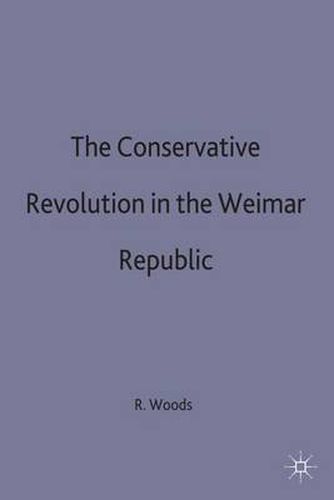Readings Newsletter
Become a Readings Member to make your shopping experience even easier.
Sign in or sign up for free!
You’re not far away from qualifying for FREE standard shipping within Australia
You’ve qualified for FREE standard shipping within Australia
The cart is loading…






This title is printed to order. This book may have been self-published. If so, we cannot guarantee the quality of the content. In the main most books will have gone through the editing process however some may not. We therefore suggest that you be aware of this before ordering this book. If in doubt check either the author or publisher’s details as we are unable to accept any returns unless they are faulty. Please contact us if you have any questions.
Embracing some of Germany’s best known writers, academics, journalists and philosophers, the Conservative Revolution in the Weimar Republic was the intellectual vanguard of the Right. By approaching the Conservative Revolution as an intellectual movement, this study sheds new light on the evolution of its ideas on the meaning of the First World War, its appropriation of the work of Friedrich Nietzsche, its enthusiasm for political activism and a strong leader, and its ambiguous relationship with National Socialism.
$9.00 standard shipping within Australia
FREE standard shipping within Australia for orders over $100.00
Express & International shipping calculated at checkout
This title is printed to order. This book may have been self-published. If so, we cannot guarantee the quality of the content. In the main most books will have gone through the editing process however some may not. We therefore suggest that you be aware of this before ordering this book. If in doubt check either the author or publisher’s details as we are unable to accept any returns unless they are faulty. Please contact us if you have any questions.
Embracing some of Germany’s best known writers, academics, journalists and philosophers, the Conservative Revolution in the Weimar Republic was the intellectual vanguard of the Right. By approaching the Conservative Revolution as an intellectual movement, this study sheds new light on the evolution of its ideas on the meaning of the First World War, its appropriation of the work of Friedrich Nietzsche, its enthusiasm for political activism and a strong leader, and its ambiguous relationship with National Socialism.